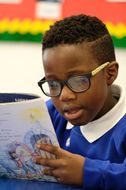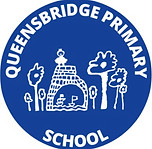

Literacy
Literacy is taught not only thorough specific lessons, but is also a huge part of the culture of the school.
‘Literacy’ covers the teaching of reading, writing and speaking.
It is taught not only thorough specific lessons, but is also a huge part of the culture of the school. There are regular reading, handwriting, spelling, punctuation and grammar lessons. The creative curriculum ensures that all knowledge and skills can then be applied with purpose and enjoyment
Reading
Our aim is to create a passionate reading community, creating the will alongside the skill.
Beyond teaching children to read using the systematic phonics programme The Code and having daily opportunities to read books at their learning level (Daily Supported Reading, Ability Reading & Reading Mileage), we also teach children a range of reading skills to deepen their thinking and understanding of the books they hear and read. These are taught through the acronym SPAiCE
Reading is very much at the heart of our curriculum. The texts and ability reading books are carefully selected not only to develop and build the children’s empathy, curiosity and imaginations but are also their knowledge and understanding of the wider world and importantly build their vocabulary and skills as writers. Literacy curriculum map
With the guidance of Doug Lemov Reading Reconsidered, a variety of texts that will support children to successfully navigate reading increasingly challenging texts with confidence have also been included in literacy map. 5 plagues of reading
Children who have difficulty accessing age appropriate books are monitored by our literacy specialists & SEND co-ordinator and the curriculum is adapted accordingly to meet their needs.
“Reading for pleasure is the single most important indicator of a child’s future success” OECD 2002
We believe at Queensbridge that ‘the will builds the skill’ and with this in mind to promote a love of reading we do many activities at Queensbridge to celebrate reading as well as regular visits to our local and school library.
Children’s comments reflect the different ways they value and enjoy reading at Queensbridge:
“You can get pulled into a whole new world.. You are in the action…just by pen and paper”
“ It’s better than television.. I do the pictures in my head.. it’s something not to do with electronics
“Reading books helps me to speak English, learn new things and words. I get to know about the world and people”
“It gives me ideas on what to write”
Parents and Reading
We recommend that parents listen to their children read regularly, as well as reading books to them for enjoyment. Coffee mornings and workshops share information on how we teach reading. Book bags are changed regularly.
Please download the following resources to assist you at home with supporting your child to read:
Parents – Reading for Pleasure
Here are some useful videos
How to Help Your Child Understand Their Reading in Y1
How to Help Your Child Understand Their Reading in Y2
How We Teach Children in Y2 to Understand Their Reading
Writting
“You can make anything by writing” – C.S Lewis
At Queensbridge our vision is to equip children with the skills to write fluently and with interesting detail on a variety of genres. We value the reciprocal relationship between reading and writing, therefore much of our writing is based on evaluating texts and using books to expand our vocabulary and support our understanding of language structure and grammar. We strive to spark imagination which allows our young writers to write with flair and purpose.
Our overview of literacy reflects this relationship and can be found here (Literacy Curriculum map)
Vocabulary
We strongly believe that a highly developed vocabulary frees a writer to compose interesting and colourful content, and our writing lessons make a point of celebrating word choices and developing children’s vocabulary. Click here to explore our tiers of vocabulary
Transcription
The children are taught transcription skills that allow them to present the best of their writing, with spelling, punctuation and editing an important part of their weekly writing routine. From EYFS to Year 6 children have handwriting lessons based on a step-by-step approach from tall letters to short letters before progressing to cursive (joined) handwriting at the start of KS2. Writing for an audience is part of our writing process. The expectation is that at the end of each writing cycle, children present their writing in a best book which any member of the school community can read. This gives the children a purpose to their writing and allows them to become published authors which again shows the school ethos that reading and writing are reciprocal.
Spelling
As well as having a rich vocabulary, children practice their spelling daily. Our spelling overviews for each year group can be found below. They are based on the national curriculum statutory spellings and word patterns lists. Children are taught explicit spelling lessons daily (including phonics lessons and phonics intervention from EYFS to year 2). Children are encouraged to monitor their own spellings. Strategies based on their prior phonics knowledge and spelling patterns, help children become fluent and independent spellers.
Speaking and Listening
There is a huge emphasis on speaking and listening from an early age, encouraging children to ‘play’ with language and to be able to articulate their thoughts. We begin early, with the use of rhymes and songs to develop understanding and to experiment with speech patterns. Children are then encouraged to develop their speaking and listening skills around all areas of the curriculum; to discuss what they are learning and develop their confidence, mastery and enjoyment of language through performances, debating and public speaking. Children are also taught specific Learning Behaviors to support talk for learning.





















